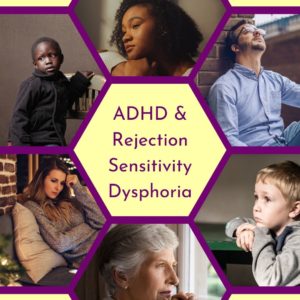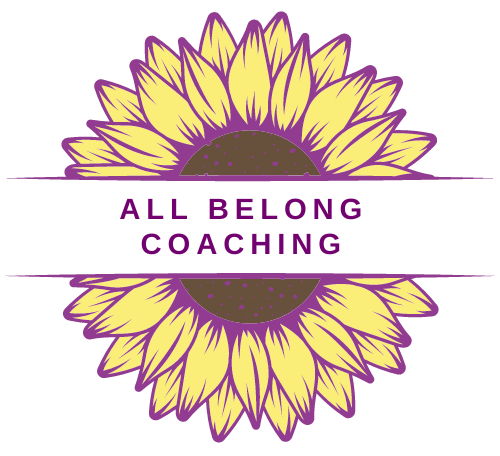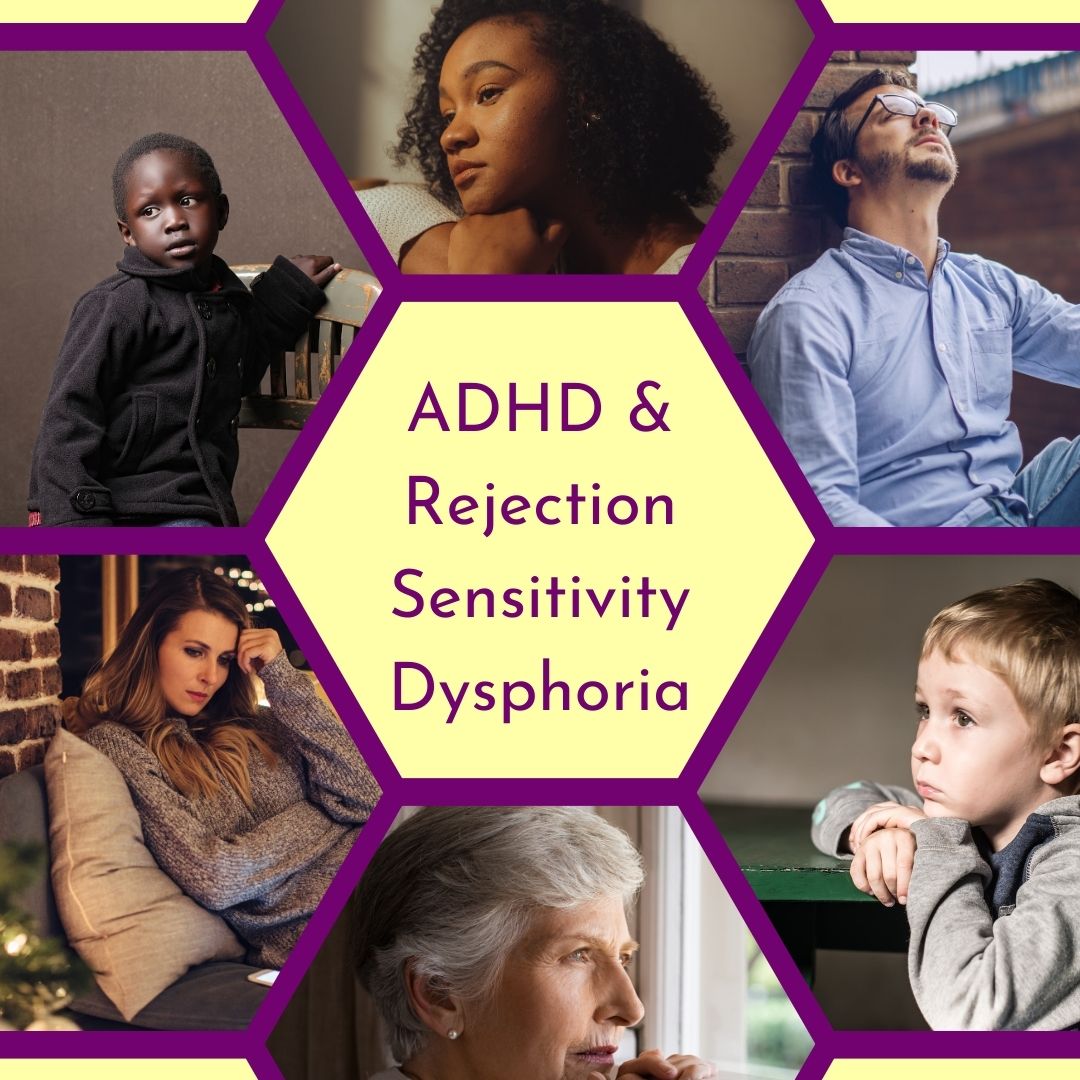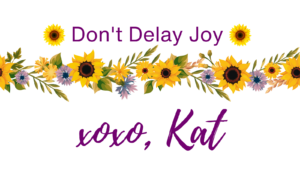Rejection Sensitivity Dysphoria
I few weeks ago, I posted to LinkedIn about how Rejection Sensitivity Dysphoria (RSD) sometimes shows up for me. It seemed to really resonate with a lot of folks, and many had never heard of this wonderful gift of ADHD (heavy on the sarcasm there).
I promised to blog about the topic and get a little bit more in depth, and so here we are. Folks with ADHD are very prone to dealing with Rejection Sensitivity Dysphoria. Let’s talk about what it is, why we are prone to struggling with it, and how it shows up in adults.
Feel free to check out that LinkedIn Post HERE

What Is Rejection Sensitivity Dysphoria?
According to Additude Magazine, “Rejection Sensitivity Dysphoria is one manifestation of emotional dysregulation, a common but misunderstood and under-researched symptom of ADHD in adults. Individuals with Rejection Sensitivity Dysphoria feel unbearable pain as a result of perceived or actual rejection, teasing, or criticism that is not alleviated with cognitive or behavioral therapy.“
So let me break that down a little bit.
- Emotional Dysregulation – this is a brain related symptom that indicates difficulty managing feelings or emotions
- Unbearable Pain – indicates severe physical or emotional pain; dysphoria is the Greek word meaning unbearable
- Perceived or Actual – this is an important part of RSD. It’s not always about actual teasing and being rejected; but a persons perception that it is happening to them
- Not Alleviated with Cognitive or Behavioral Therapy – this is another important part of RSD. This type of dysregulation is not alleviated by many traditional therapy types.
As you can see, Rejection Sensitivity Dysphoria is more than lower self esteem, it’s more than “being too sensitive,” and it’s more than needing to “toughen up.”
Nobody loves to be criticized, but when someone experiences Rejection Sensitivity Dysphoria it’s often described as a physical pain and their response is often bigger than the event that triggered it called for.


Why are ADHD folks prone to having struggling with RSD?
Studies done by people who do that type of thing say that between 30% and 60% of people with ADHD display struggles with Rejection Sensitivity Dysphoria.
Anecdotally, in my ADHD circle of friends, family, and clients the percentage is much much higher. The more that I learn about the brain, ADHD, and how we have changed our understanding of it, the more I understand why we are so prone to struggling with it.
In addition to the brain chemistry that differs in folks with ADHD, here are some other factors that I think contribute to in increase in RSD in ADHD folks.
- Executive Function Difficulties – as kids with ADHD we often struggled with executive functions that our neurotypical peers began to master such as waiting our turns, knowing when to be quiet, sharing, and regulating emotions which leads to rejection from our peers and adults showing us that our neurotypical peers were “good” and we were “bad.”
- Societal Norms – Kids, teens, and adults with ADHD often don’t feel that they fit into societal norms. Often free spirited, different thinkers we learn early that they are “right” and we are “wrong.”
- Well Intentioned, But Harmful Therapy – many adults in the ADHD community feel that types of therapies that were offered to them growing up, and as adults, are focused on the goal of being more “normal.” Fitting in better, not annoying others, and ignoring our bodies needs for the comfort of others.
- Negative Input – kids and young adults with ADHD and other types of neurodivergent brains receive exponentially higher amounts of negative input from their parents, caregivers and peers than their neurotypical peers. They spend their lives being told that they are wrong, bad, lazy, or crazy and being told how they “should” act, think, or be in order to make others feel comfortable with them.
All of the above factors, plus others, help give kids and young adults anxiety, perfectionism, poor self esteem and more that they carry with them into adulthood.
How does RSD show up in adults?
Many people who have ADHD struggle with RSD and may not be aware of it. Especially if they are also unaware of their ADHD diagnosis as well. So how does RSD manifest and show up in adults with ADHD? Here are a few ways.
- People Pleasing – being overly concerned with making others happy.
- Giving Up – deciding they are lazy or stupid, they may give up trying.
- Low Self Esteem – many folks with ADHD think they are stupid, incapable and “not good enough.”
- Anxiety – may develop general or social anxiety. Fears of doing things wrong, offending people, or being “too much” leads to anxious adults.
- Rejection Anticipation – many folks learn to expect rejection, often pushing people or ideas away before they can be rejected by others.
- Anger Outbursts – folks with ADHD tend to get overwhelmed easily, and may snap at people, then feel bad about it and apologize.
- Harmful behavior – Increased rates of self harm, addictions, and other risky behavior are all impacted by having ADHD and struggling with RSD.
There are many other ways that someone with ADHD may struggle with Rejection Sensitivity Dysphoria, these are just some of the more commonly reported ones.


So what now?
So now that you know about Rejection Sensitivity Dysphoria and know why and how it impacts folks with ADHD, what do you do about it?
Come back in February when I drop a blog about managing with RSD and the impacts it can have on your day to day life. We’ll talk about medications, tips and tricks for managing, and strategies for overcoming the roadblocks in the way to your success.

I Can Help!
Did you read this blog and feel like a light bulb went off? Do things suddenly make sense? Does it feel “right” to think you might be struggling with RSD and not actually just “over sensitive”?
Do you want to strategize ways to lessen the impacts RSD has on your life, or your child’s life? Book a FREE, no obligation discovery call with me. I’d love to talk with you about how we can partner together today.
Book a FREE Discovery Call Today
I’d love to talk to you about ADHD and Rejection Sensitivity Dysphoria. If you have questions, or tips you want to share, please feel free to send me an email at Kat@AllBelong.com. Make sure to follow me in all the places so you don’t miss anything!
First tip if you struggle with this – remember that your thoughts sometimes lie to you! Have a great day, friend.




2 comments